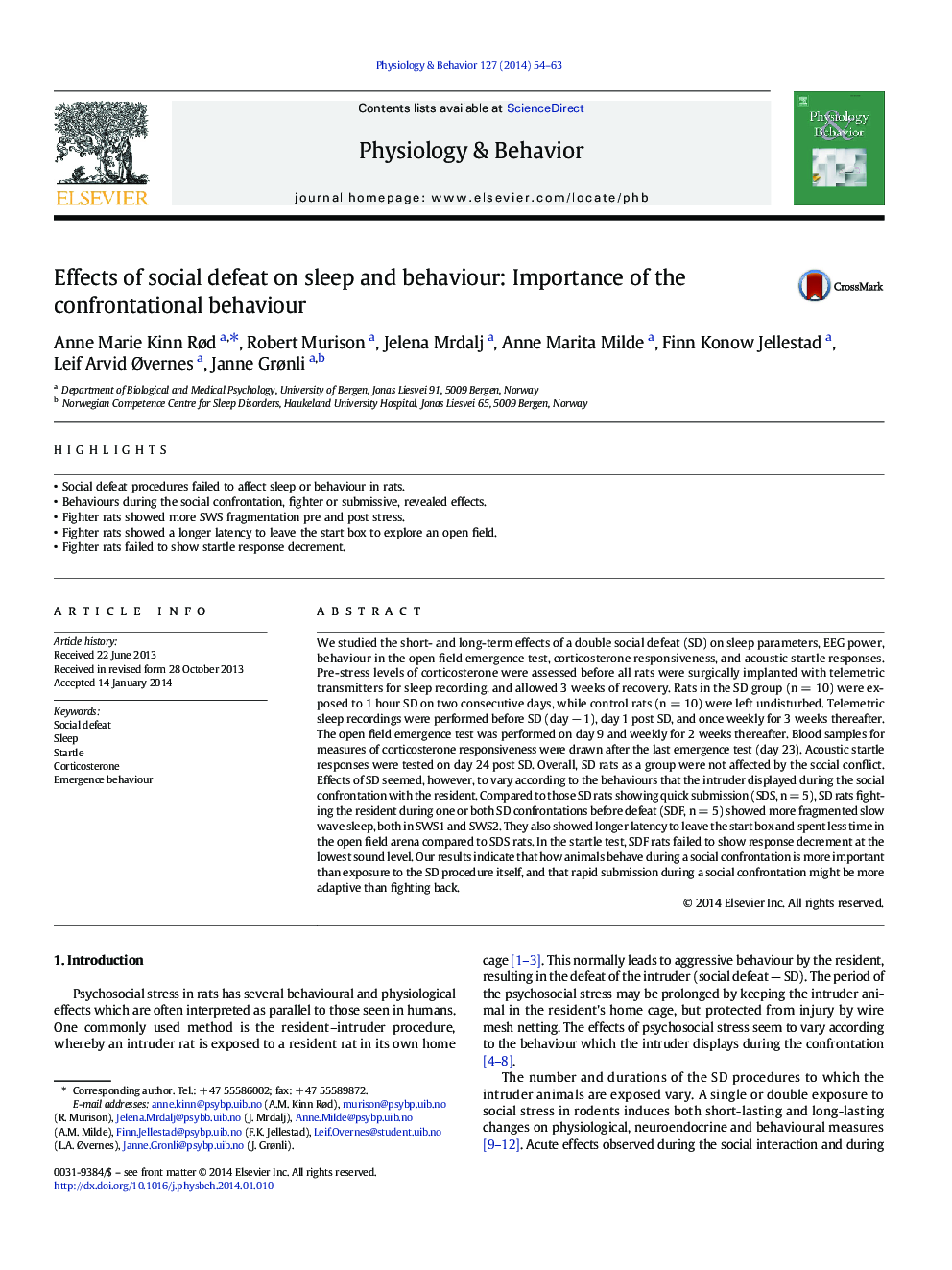| کد مقاله | کد نشریه | سال انتشار | مقاله انگلیسی | نسخه تمام متن |
|---|---|---|---|---|
| 2844298 | 1571190 | 2014 | 10 صفحه PDF | دانلود رایگان |
• Social defeat procedures failed to affect sleep or behaviour in rats.
• Behaviours during the social confrontation, fighter or submissive, revealed effects.
• Fighter rats showed more SWS fragmentation pre and post stress.
• Fighter rats showed a longer latency to leave the start box to explore an open field.
• Fighter rats failed to show startle response decrement.
We studied the short- and long-term effects of a double social defeat (SD) on sleep parameters, EEG power, behaviour in the open field emergence test, corticosterone responsiveness, and acoustic startle responses. Pre-stress levels of corticosterone were assessed before all rats were surgically implanted with telemetric transmitters for sleep recording, and allowed 3 weeks of recovery. Rats in the SD group (n = 10) were exposed to 1 hour SD on two consecutive days, while control rats (n = 10) were left undisturbed. Telemetric sleep recordings were performed before SD (day − 1), day 1 post SD, and once weekly for 3 weeks thereafter. The open field emergence test was performed on day 9 and weekly for 2 weeks thereafter. Blood samples for measures of corticosterone responsiveness were drawn after the last emergence test (day 23). Acoustic startle responses were tested on day 24 post SD. Overall, SD rats as a group were not affected by the social conflict. Effects of SD seemed, however, to vary according to the behaviours that the intruder displayed during the social confrontation with the resident. Compared to those SD rats showing quick submission (SDS, n = 5), SD rats fighting the resident during one or both SD confrontations before defeat (SDF, n = 5) showed more fragmented slow wave sleep, both in SWS1 and SWS2. They also showed longer latency to leave the start box and spent less time in the open field arena compared to SDS rats. In the startle test, SDF rats failed to show response decrement at the lowest sound level. Our results indicate that how animals behave during a social confrontation is more important than exposure to the SD procedure itself, and that rapid submission during a social confrontation might be more adaptive than fighting back.
Journal: Physiology & Behavior - Volume 127, 29 March 2014, Pages 54–63
